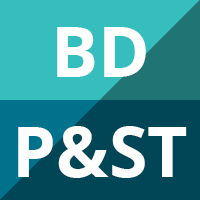
Calcium antagonists as an add-on therapy for drug-resistant epilepsy
Abstract Background This is an updated version of the original Cochrane review published in The Cochrane Library 2001, Issue 4. Nearly a third of people with epilepsy do not have their seizures controlled with current treatments. Continuous attempts have been made to find new antiepileptic drugs based on increasing knowledge of the cellular and molecular […]

Phenobarbitone versus phenytoin monotherapy for partial onset seizures and generalised onset tonic-clonic seizures
Abstract Background This is an updated version of the original Cochrane review published in The Cochrane Library 2001, Issue 4. Worldwide, particularly in the developing world, phenytoin and phenobarbitone are commonly used antiepileptic drugs, primarily because they are inexpensive. The aim of this review is to summarise data from existing trials comparing phenytoin and phenobarbitone. […]

Pregabalin monotherapy for epilepsy
Abstract Background Many people with epilepsy suffer from poorly controlled seizures, despite current antiepileptic treatments. Due to high rates of treatment resistance, there is interest in new pharmacological treatment options such as pregabalin. However, it remains unclear whether existing evidence of pregabalin is rigorous enough to support its monotherapy. Objectives To determine the efficacy and […]

Drugs and pacemakers for vasovagal, carotid sinus and situational syncope
Abstract Background Neurally mediated reflex syncope is the most common cause of transient loss of consciousness. In patients not responding to non-pharmacological treatment, pharmacological or pacemaker treatment might be considered. Objectives To examine the effects of pharmacological therapy and pacemaker implantation in patients with vasovagal syncope, carotid sinus syncope and situational syncope. Search methods We […]

Oxcarbazepine versus carbamazepine monotherapy for partial onset seizures
Abstract Background Partial onset seizures are often treated with the standard antiepileptic drug carbamazepine. Oxcarbazepine is a newer antiepileptic drug related to carbamazepine that is claimed to be better tolerated. Objectives To compare efficacy and tolerability of carbamazepine and oxcarbazepine monotherapy for partial onset seizures. Search methods We searched the Cochrane Epilepsy Group Specialised Register […]

Antidepressants for non-specific low back pain
Abstract Background Antidepressants are commonly used in the management of low-back pain. However, their use is controversial. Objectives The aim of this review was to determine whether antidepressants are more effective than placebo for the treatment of non-specific low-back pain. Search methods Randomised controlled trials were identified from MEDLINE, EMBASE and PsycINFO (to November 2008), […]

Clobazam as an add-on in the management of refractory epilepsy
Abstract Background Epilepsy effects approximately 1% of the population, with up to 30% of patients continuing to have seizures despite antiepileptic drug treatment. Objectives To assess the efficacy and tolerability of clobazam when used as an add-on therapy for patients with refractory partial onset or generalised onset seizures. Search methods We searched the following databases: […]

Therapeutic monitoring of antiepileptic drugs for epilepsy
Abstract Background This is an updated version of the original Cochrane review published in Issue 1, 2007. The aim of drug treatment for epilepsy is to prevent seizures without causing adverse effects. To achieve this, drug dosages need to be individualised. Measuring antiepileptic drug levels in body fluids (therapeutic drug monitoring) is frequently used to […]

Anticonvulsants for neonates with seizures
Abstract Background Neonatal seizures are a common problem and most neonates with seizures are treated with anticonvulsants. There is wide variation in clinical practice in both diagnosis and treatment of such seizures and this reflects the lack of clear evidence of the relative benefit and harm of the anticonvulsants used. The routine use of anticonvulsants […]

Remacemide for drug-resistant localization related epilepsy
Abstract Background This is an updated version of the original Cochrane review published in issue 4, 2002. Epilepsy is a common neurological condition, affecting 0.5% to 1% of the population. Nearly 30% of people with epilepsy have seizures that are refractory to currently available drugs. In response to this problem, potential new drugs are being […]

